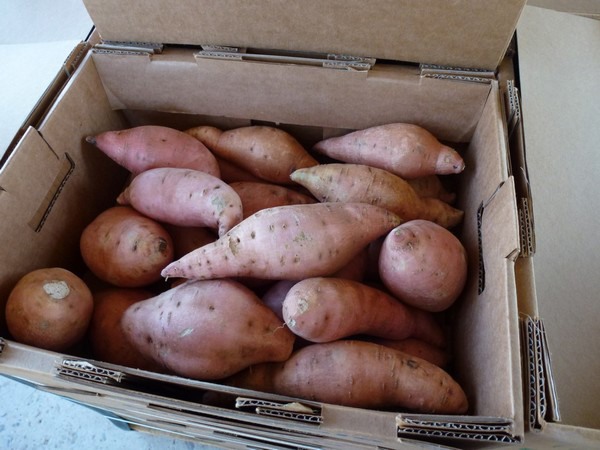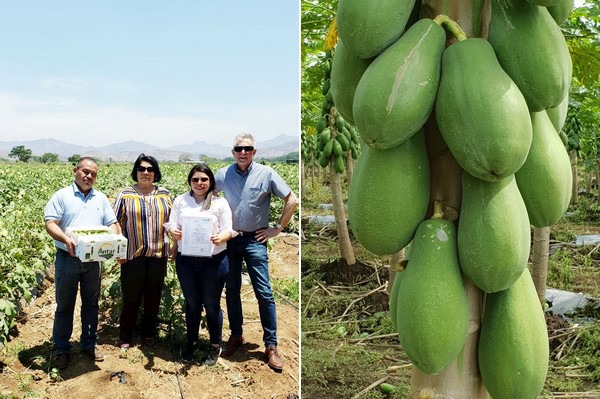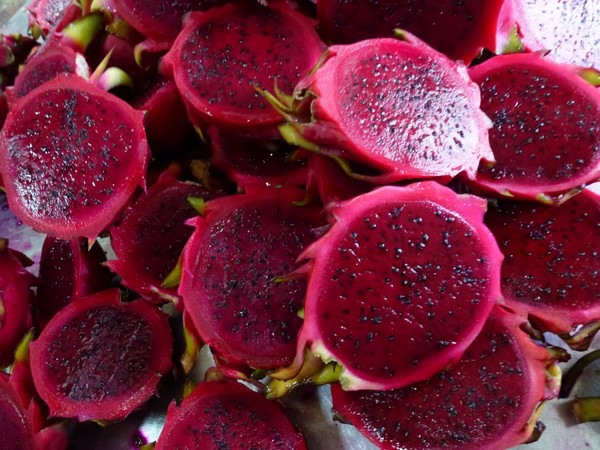Almost all trade shows have been canceled. So, there's considerably less chance for Central American companies to present themselves to the European market. The Centre for the Promotion of Imports (CBI) in Europe has, therefore, set up a portal. Here, importers can currently be introduced to six of these exporters via a virtual tour.
The CBI set this project up to support fruit exporters in Central America. European importers can meet these companies on a virtual platform. The products include not only sweet potatoes and cassava from Costa Rica. There are also mangos from Guatemala and papaya from Pana. And okra from Honduras and pitaya from Nicaragua.
Piet Schotel is involved in the project. He works from the Netherlands to help these companies on their way. "Relatively new players on the European market must be able to present themselves. That's usually at trade fairs, through trade missions, and such. Since that's not possible for now, they must come to the attention of potential clients in other ways."

Trade fairs currently offer virtual alternatives. But, these don't really help these exporters, explains Schotel. "It's essential to be able to present yourself. After all, unknown means unloved. In our industry, virtual shows aren't a true alternative. Perhaps that will become the case if physical trade shows are no longer possible. But, generally, importers don't actively look for contacts on virtual platforms. At trade shows, importers, not just visitors, are also usually a target group for these companies from Central America."
Naturally, the canceled or now-virtual events aren't these traders' only challenge. According to Schotel, it's, for example, more difficult to prevent staff shortages. That's due to illness and logistical problems. "Like everywhere else in the world, Central American businesses face various Covid-19 pandemic-related challenges. The companies we're promoting in this round have maintained good sales."
"But there are staff problems. It's harder for them to get to work or they're sick. It's more challenging to get export documents in order. And, sometimes, there's trouble finding enough workers due to border closures. Those prevent employees from working in other countries. The companies themselves are making every effort to work safely and hygienically."

Piet believes the European market is very interested in Central American products. That region has experience in exporting to North America, so it's accustomed to high quality standards. "Central America, in general, and 'our companies' in particular, are interesting for European importers. That's because of some products, like mangos, production windows. The quality these countries are used to delivering is also a plus. They generally have a lot of experience exporting to the United States and Canada."
"These businesses are, therefore, used to higher quality requirements. In Europe, there are food safety requirements too. But, these companies are GlobalGAP certified anyway. A lot of emphasis is now being placed on social compliance. CBI is concentrating a lot on this by organizing CSR and GRASP training courses. And there are sufficient connections, both sea, and air freight, even in these times. They're short enough and well-organized too. That makes fresh arrivals possible."

Not all Central American companies qualify to be part of this project. Schotel explains that there were still some requirements to guarantee quality for the virtual tours' visitors. "We support 17 companies that are participating in the 'CBI export Coaching Program' for Central America. Currently, the focus is on six of these. These companies' certification must be in order. They must be ready for the European market in all respects too. They must also have English-speaking employees. The next few months is the ideal time for them to contact importers for the deliveries in early 2021."
"Fellow consultant, Arno van der Maden, from Costa Rica and I guide the companies for the CBI. We advise the program participants. We're happy to help them make the contacts and provide further information. This online B2B event is part of CBI's Connecting Central America initiative. It supports midrange companies to become more competitive in the European market. It's co-financed by the European Union and coordinated by SEICA," concludes Piet.
Click here for the brochure.
Click here to contact one of the Central American companies.
For more information:
Piet Schotel
Fruit Consultancy Europe
Mob: + 31 (0) 653 381 897
Email: piet@fruitconsultancy.nl
Website: www.fruitconsultancyeurope.nl
Arno van der Maden
Email: arno@nsdeltropico.com
Mob: +506 884 74 746
Nicky Buizer
CBI
Tel: +31 (0) 629 196 954
Email: nbuizer@cbi.eu
